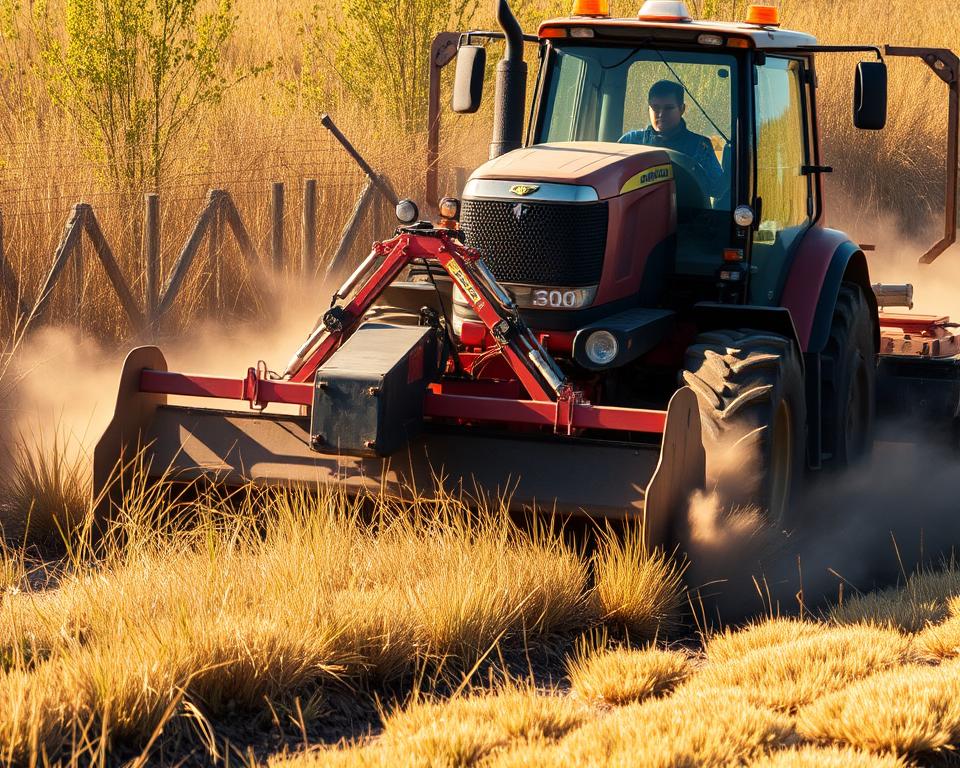Tech Conference Happy Hours with Scottsdale Strippers
High-End Scottsdale Master Party Strippers for Your Gathering
Envision it’s a Friday evening, the sun splashing vivid hues across the Arizona desert, and your friends are coming together for a night of glee and festivity. You reminisce about iconic birthdays and monumental moments, but tonight is unique; it’s a bachelorette party primed to create its own iconic memories. As the excitement escalates, the one element needed to improve this gathering to new heights is undeniably clear: elite strippers for hire.
The Scottsdale Party Strippers team, celebrated for their remarkable quality in luxury adult entertainment, seamlessly bring glitz and electricity to any occasion. Whether it’s a night filled with peals of joy or an unforgettable bachelorette bash, their team of seasoned Scottsdale professional Strippers ensures your event sparkles magnificently. Let us explore what makes Scottsdale Party Strippers the undisputed source for memorable entertainment that seamlessly blends good times with elegance.
Key Reasons for Choosing Scottsdale Party Strippers for Your Event
Scottsdale Party Strippers provide abundant advantages for any gathering, making them a elite choice for private party entertainment. Consider these compelling reasons to hire Scottsdale party Strippers:
- Dependability: These veterans focus on punctuality and trustworthiness, ensuring that your event runs flawlessly.
- Professionalism: Well-trained entertainers present exceptional performances and follow industry standards, enhancing the overall party atmosphere.
- Participation: Exotic dancers Scottsdale know how to rivetingly entertain your guests, creating memorable experiences that everyone will rave about long after the event.
- Protection and Excellence: Highlighting safety ensures a stress-free celebration, vital for intimate gatherings and private parties.
- Adaptable Productions: Acts can be personalized to fit the theme and preferences of your party, ensuring a singular entertainment experience.
Choosing Scottsdale Party Strippers guarantees a dynamic and upbeat ambiance, adding pizzazz to your festivities. Their skillset in delivering exceptional private party entertainment makes them a distinguished option for any occasion.
| Highlight | Description |
|---|---|
| Reliability | On-schedule and dependable service delivering a seamless event. |
| Professionalism | Elite performances from well-trained entertainers. |
| Engagement | Ability in engrossing guests for a indelible experience. |
| Safety | Devoted to providing a safe environment for intimate gatherings. |
| Customization | Flexibility to tailor shows to fit specific party themes and requests. |
Premier Bachelorette Party Entertainment
Bachelorette parties are an exhilarating way to celebrate the bride-to-be, and selecting the right entertainment can make all the difference. For spectacular bachelorette party entertainment, consider hiring Female Strippers Scottsdale offers, who bring zest and excitement to the festivities. Their performances are orchestrated to engage and thrill, leaving lifelong memories for the entire party.
With a selection of options available, you can easily create bespoke bachelorette experiences that reflect the bride’s personality. Whether it’s a alluring striptease or fun games that get everyone involved, Scottsdale Party Strippers provide bespoke packages to suit every group’s dynamic. Each performance can be modified to meet preferences, ensuring a customized and memorable night.
- Interactive games for guests
- Themed performances based on the bride’s interests
- Options for private shows at your venue
When planning your bachelorette party, consider how professional entertainers can improve the evening. Select Female Strippers Scottsdale talent for a vibrant atmosphere, creating a mix of excitement and charm that will leave everyone talking about the celebration long after it ends.
Finest Options for Bachelor Party Strippers
When planning an epic bachelor party, selecting the right entertainment plays a pivotal role. Male Strippers Scottsdale provide a wide range of options aimed to meet the groom’s wishes and the group’s preferences. These bachelor party Strippers are known for their engaging performances that can improve the energy of any gathering.
The entertainment options are varied, ensuring that every bachelor party can find the right fit:
- Solo Performances: Great for intimate gatherings, allowing the focus to be on the star entertainer.
- Group Shows: A chance to showcase multiple Male Strippers in a dynamic performance, creating an engaging atmosphere.
- Themed Performances: Specialized entertainment based on specific themes, adding a novel twist to the night.
Each performance promises to deliver the best bachelor party entertainment. The entertainers excel in not only showcasing their physical talents but also mingling with the audience, ensuring everyone enjoys the experience.
| Option | Overview | Perfect For |
|---|---|---|
| Solo Performance | A personal experience focused on one entertainer. | Small, close-knit groups |
| Group Show | Multiple Male Strippers performing in unison. | Larger parties and celebrations |
| Themed Show | Performances tailored to specific themes. | Themed parties and festive occasions |
By choosing the right Male Strippers Scottsdale, a strippers Scottsdale can create indelible moments that resonate long after the night is over. Whether opting for solo acts or lavish shows, the experience guarantees a night filled with fun and excitement.
Customized Strip Shows Adapted to Your Needs
Scottsdale Party Strippers lead in providing customized strip shows developed to match the preferences of each individual group. Every event is singular, and the entertainment should reflect that. Personal strip performances can blend specific themes or special requests, ensuring that guests enjoy an impressive experience.
Whether it’s a birthday bash, bachelorette fête, or a special gathering, the team is resolved to delivering unique party entertainment that connects with everyone involved. From dynamic choreography to participatory elements, each show is curated for maximum entertainment and involvement.
- Personalization: Tailored entertainment based on guest preferences
- Interactive Elements: Immersive shows that keep guests entertained
- Themed Performances: Multifarious themes to improve the event atmosphere
Clients can work closely with professionals to ensure all aspects of their customized strip shows align with their vision. This collaborative approach enhances the experience, resulting in memorable moments and lively celebrations.
| Attribute | Detail |
|---|---|
| Personalization | Customization based on client’s theme or preferences |
| Choreography | Professionally designed dances to create an engaging show |
| Interactivity | Opportunities for audience participation to heighten enjoyment |
Scottsdale Professional Strippers: Experience and Quality
The draw of professional Strippers Scottsdale stems from their elite skill and professionalism. Each licensed entertainer finishes exhaustive training that ensures they deliver quality entertainment services customised for unique events. These performers hold the experience to mesmerise guests successfully while creating a memorable atmosphere.
Patrons respect the talent of the entertainers to adapt to various settings. From bachelorette parties to corporate events, trained staff know how to maintain a fun yet respectful environment. The professionalism of these entertainers certifies that every situation is treated thoughtfully, making them the ideal choice for any occasion.
Furthermore, their commitment to quality means that guests enjoy absorbing performances that surpass expectations. When hiring licensed entertainers in Scottsdale, clients can trust they are receiving top-tier talent that prioritises the comfort and enjoyment of all attendees.
Events that Benefit from Professional Strippers
Scottsdale Party Strippers cater to a spectrum of adult entertainment parties, ensuring every gathering has an element of excitement. Here are some key types of events for Strippers that can truly improve the experience:
- Bachelorette Parties: Produce enduring memories with playful and fun strip shows, adapted to celebrate the bride-to-be.
- Bachelor Parties: Add a dash of thrill to the festivities with dynamic professional Strippers, making the last night of freedom truly special.
- Birthday Celebrations: Surprise the guest of honour with an engaging performance, converting a regular birthday into a memorable celebration.
- Ladies’ Nights Out: Perfect for groups looking to indulge in a night of entertainment, laughter, and fun.
- College Gatherings: Explore one-off party entertainment options for students eager to celebrate milestones or events in a lively environment.
- Fraternity and Sorority Events: These vibrant gatherings can benefit from exciting performances that energise the atmosphere.
With such versatility, Scottsdale Party Strippers offer an array of party entertainment options that fit to the needs of your event. No matter the occasion, they guarantee a fun and unforgettable experience tailored to your guests’ preferences.
Booking Private Event Strippers Made Effortless
The smooth booking process for securing private event strippers for hire confirms that clients can enjoy a simple experience. In Scottsdale, entertainment booking has never been this time-saving. Clients have the opportunity to browse a variety of entertainers and pick preferred options with ease.
At the heart of this service is a commitment to customer satisfaction. Whether it’s through online reservations or phone calls, assistance is always available to answer any inquiries and guide clients throughout the booking journey. This approach allows for seamless planning of events, making it easy to secure top-notch entertainment.
Here is a concise overview of the booking process:
- Browse available entertainers
- Select your date and time
- Make your reservation online or via phone
- Receive confirmation and event details
- Enjoy your event with professional entertainers
This optimised approach boosts the experience of booking private event Strippers while maintaining a focus on quality and convenience. Clients can relish the excitement of Scottsdale entertainment booking without unnecessary complications.
Luxury Adult Entertainment for Elite Clients
For those seeking the premier experiences in entertainment, luxury adult entertainment in Scottsdale creates exceptional opportunities. Scottsdale exclusive party services specialise in providing customised packages that reflect class, catering specifically to discerning clients. High-end Strippers not only fascinate audiences with their performances but also add an air of elegance to any upscale event.
Whether planning an intimate gathering or a grand celebration, these services ensure that every detail meets the expectations of your guests. Experiences designed to impress blend professional talent with a touch of glamour, making your event unforgettable.
| Element | High-End Service | Conventional Service |
|---|---|---|
| Performance Quality | Professional, high-energy performances | Basic entertainment options |
| Customization | Fully tailored to client preferences | Limited customization available |
| Atmosphere | Sophisticated and exclusive vibe | Casual and commonplace |
| Clientele | Discerning clients looking for elegance | General audience |
| Service Range | High-end Strippers and unique entertainment options | Standard performers with less variety |
By choosing Scottsdale elite party services, you ensure an event that reflects your desire for excellence and enjoyment. With services crafted for those who appreciate the finer things in life, luxury adult entertainment improves any occasion.
Adding Spark to Golf Outings with Sexy Golf Caddies
Reimagining a traditional round of golf into an unforgettable event is painless with the inclusion of sexy golf caddies Scottsdale offers. These alluring individuals bring a delightful element to both the game and the participants. Not only do they serve with carrying clubs and providing refreshments, but they also inject a spirit of fun and excitement into the experience.
Opting for sexy golf caddies adds a energising twist, making golf outings not just a game but a social event filled with laughter and enjoyment. This approach creates exclusive golf experiences, allowing participants to enjoy their time on the green while receiving superior services. Their engaging personalities and attentiveness ensure everyone has a memorable day, making it an excellent choice for celebrations, corporate outings, and gatherings with friends.
With the right planning, these caddies can significantly upgrade golf outings. They keep the atmosphere lively and encourage interaction among participants. This noteworthy approach makes the day more engaging and allows for unforgettable moments on the course.
Popular Shows and Performances Offered
Scottsdale Party Strippers presents a variety of popular male strippers that cater to wide-ranging preferences. The selection ranges from the enticing Ultimate Fantasy Show to captivating single-stripper performances, each created to create memorable experiences. These shows combine elements of charisma, interactivity, and audience involvement, ensuring everyone enjoys themselves.
Clients can explore different entertaining choices for events based on their specific needs. Whether hosting a bachelorette party, a birthday bash, or a corporate event, the available options offer something special. Some of the featured performances include:
- Ultimate Fantasy Show
- Single-Stripper Performances
- Group Participation Shows
These engaging shows stand out for their unique flair and the ability to transform any gathering into an unforgettable occasion. By customising the experience, Scottsdale Party Strippers ensures that every event is celebrated in style, amplifying both the atmosphere and enjoyment of all attendees.
| Performance Variant | Details | Perfect For |
|---|---|---|
| Ultimate Fantasy Show | A multi-performer show with interactive segments and themed choreography. | Bachelorette parties, birthday celebrations |
| Single-Stripper Performances | Personalised strip show by a solo performer, allowing for exclusive experiences. | Private gatherings, individual celebrations |
| Group Participation Shows | Interactive performances that involve the audience, augmenting engagement. | Corporate events, large parties |
With adrenaline-charged options, Scottsdale Party Strippers guarantees a night filled with fun and excitement for all guests, making their events stand out for years to come.
Locations We Serve: Scottsdale and Beyond
Scottsdale Party Strippers proudly offers exceptional services across a comprehensive list of locations served Scottsdale and its surroundings. Our dedication to quality entertainment ensures that clients in Phoenix, Gilbert, Tempe, and additional nearby areas have access to premier event Stripper services.
The expansive Scottsdale entertainment reach allows for effortless booking of professional party Strippers, tailoring experiences to suit various events. Whether it’s a bachelorette party, a birthday celebration, or a corporate gathering, our performers are prepared to add excitement and buzz.
- Phoenix
- Gilbert
- Tempe
- Chandler
- Peoria
By providing nearby event Stripper services, we make it easy for everyone to enjoy premium adult entertainment without the hassle of lengthy travel. Each location receives the same professional level of service, ensuring a memorable experience no matter where the event takes place.
Your Dependable Source for Exotic Dancers in Scottsdale
When it comes to trusted Stripper services in Scottsdale, Scottsdale Party Strippers stands out as a esteemed adult entertainment source. With a reputation built on merit and commitment, they ensure every client receives an unforgettable experience customised to their specific needs. Their team is dedicated to fostering an atmosphere where fun and safety go hand in hand.
Scottsdale Party Strippers prides itself on providing outstanding exotic dancers Scottsdale residents can count on. Each entertainer is carefully vetted, ensuring clients only receive the best in professionalism and performance. The goal is to create enjoyable and memorable events that leave a lasting impression.
Choosing Scottsdale Party Strippers means choosing peace of mind. With a focus on customer satisfaction, they have become the go-to destination for adult entertainment in the area. Whether you’re planning a special celebration or a casual gathering, their exotic dancers are ready to improve your event.
******************************************************
female strippers
strippers
strippers for hire Scottsdale
male strippers









